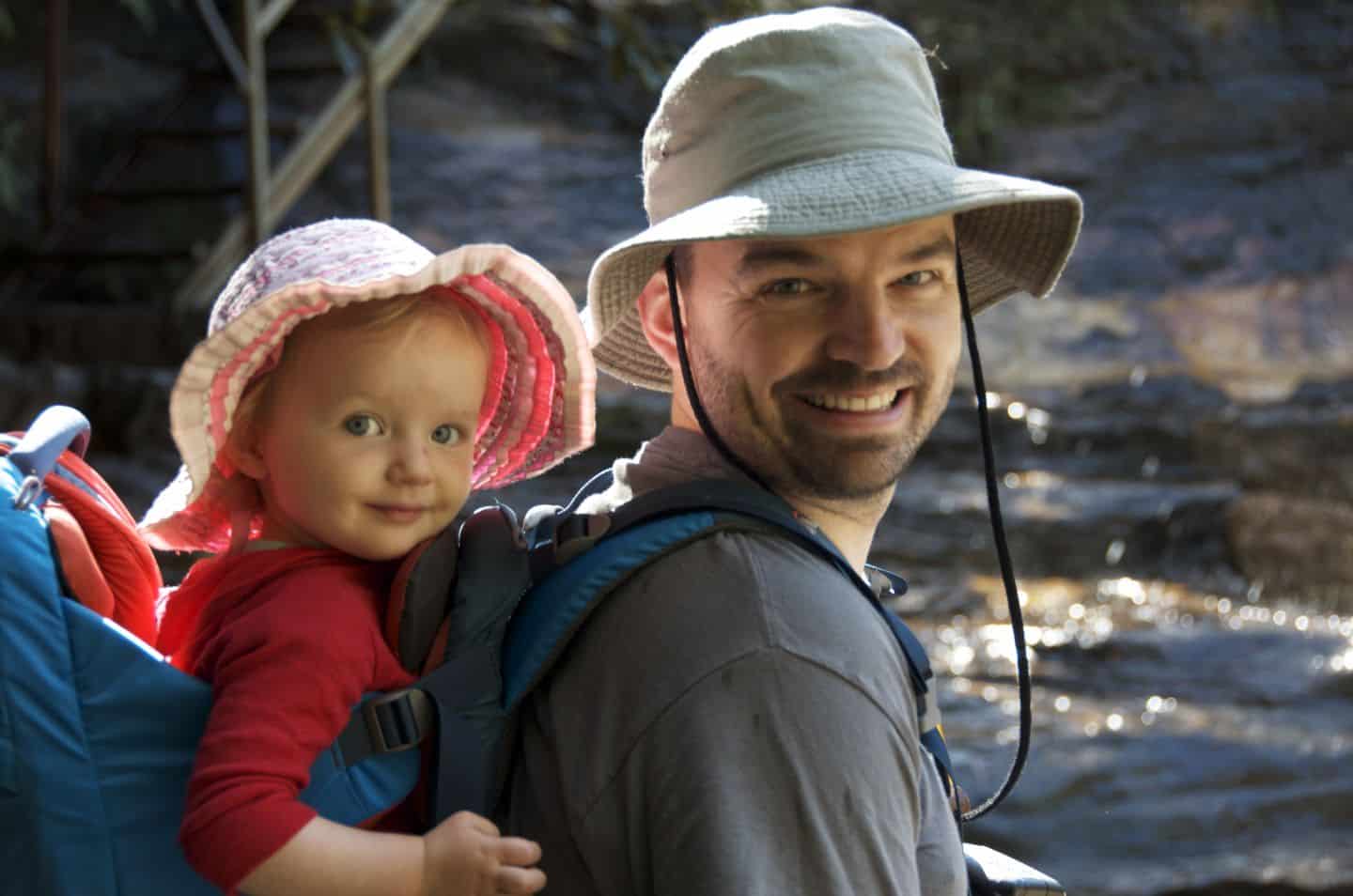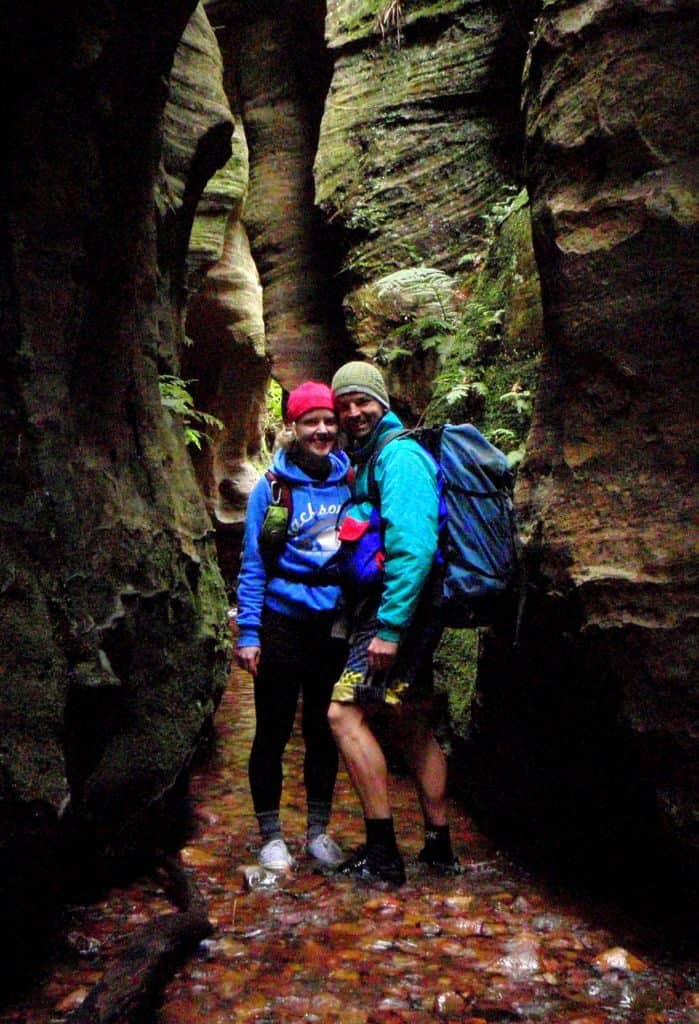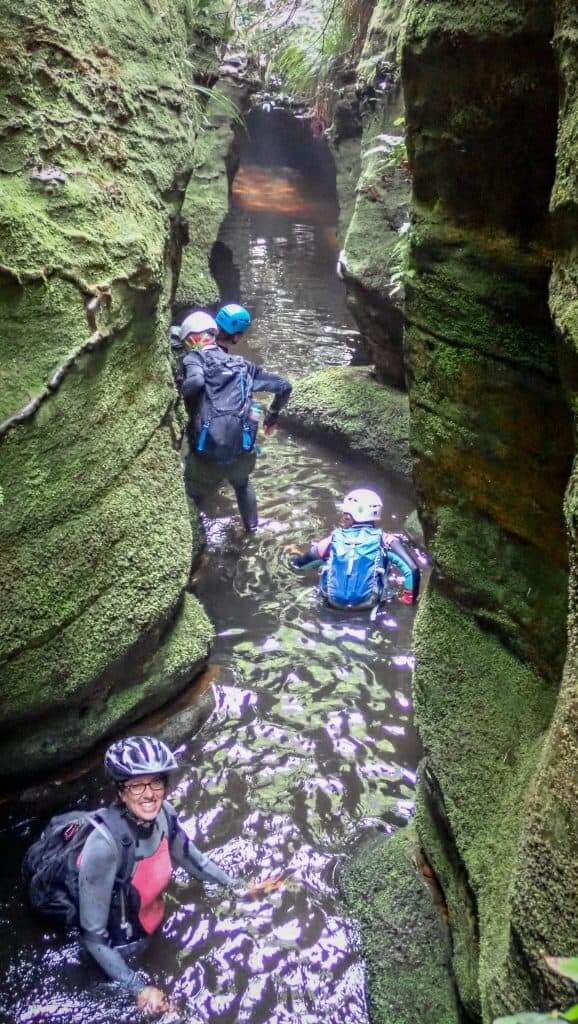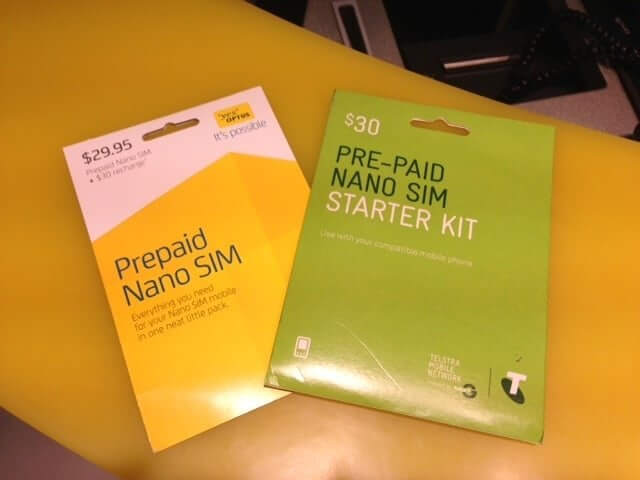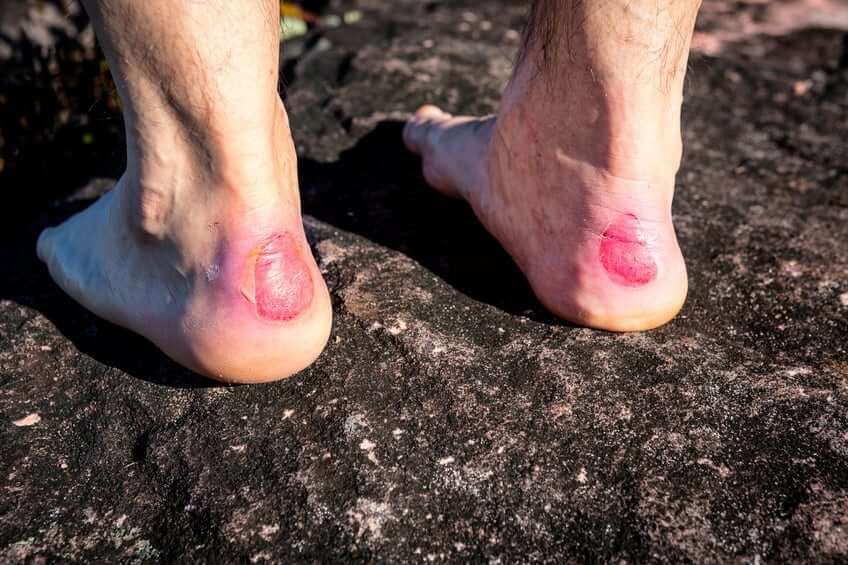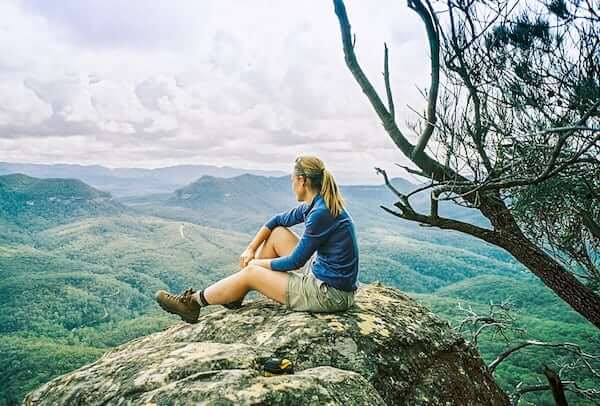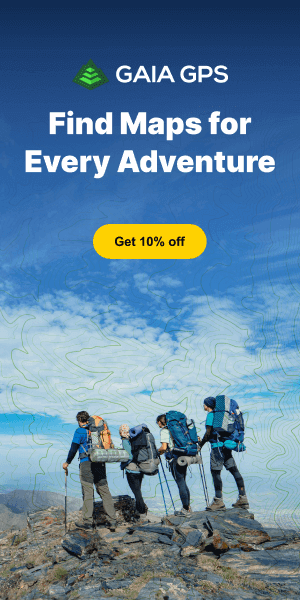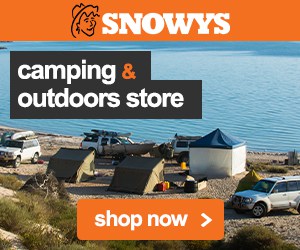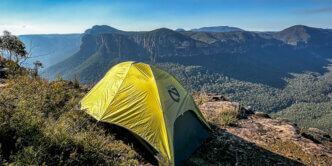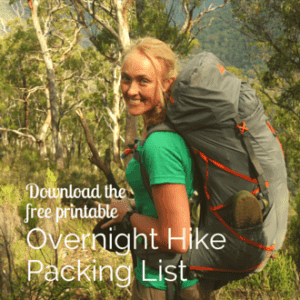A guide for blokes
When I was in high school my mates called me “Bush”, and not because I was a great outdoorsman. Actually, I had no idea what I was doing, but I loved bushwalking and camping and having a crack. Eventually, after a few career dead ends, I threw myself into a course to learn how to become an outdoor guide. I’ve been guiding now for over 10 years, and one of the topics that I had never really considered as a bloke in the bush before I became an outdoor leader was the fact that periods happen all the time, in all places – including out in the wild.
I hadn’t thought to consider what extra I might need to know and do as a leader or fellow camper to show courtesy for anyone in the group who might be menstruating. But, as someone who spends a lot of time in the outdoors with mixed groups, I think it’s essential for everyone involved with outdoor activities – blokes especially – to know more than just the basics about periods. This is particularly true if you’re heading out with hikers less experienced and comfortable in the outdoors than you are.
A few moons ago Lotsafreshair published a post about a feminine hygiene product which sparked some debate [ed: Interestingly, the Facebook post of the discussion has mysteriously disappeared]. There is a broad spectrum of beliefs and values in our community and as someone elegantly put it, this topic generally isn’t the kind of material that you whip out and share around at a BBQ.
But if you have been wondering how to plan as a group leader, or how to show courtesy as a fellow camper, I hope you’ll get some use out of these handy tips (from an outdoor bloke):
Be upfront
Before I take a group out in to the bush, I usually cover off on a whole bunch of ground rules and tips. Included amongst these pointers are managing toileting, what to do with waste, and in general hygiene I include information on how to manage a period in the bush. By being open, clinical and no-fuss about the issue from the outset, you can help set the tone and be approachable in the event any issues arise. This is a topic where many women on their periods can feel uncomfortable or unwilling to approach others for help, especially if the group leader is a bloke. Do you best to make it clear you will be professional and discreet if anyone comes to you for aid. If you happen to have any experienced female hikers in your group, consider whether some or all of this information might be better coming from her. (Pro tip: keep your audience broad. It is generally better not to try and guess who is going to find the info relevant).
Carry a spare
In my first aid kit I always carry a packet of tampons, 1 or 2 regular pads and a non see-through sanitary disposal bag (you can buy them in the tampon aisle). Make sure everyone in the group knows that you have spares, and make the kit a publically accessible item so that if someone is too shy to ask they don’t need to. (Bonus: pads double as an excellent patch for some injuries.) Communicate to your group that you also have pain-killers available for anyone with particularly bad cramps.
Speaking of First Aid
If someone is ill or injured in a remote area you may be caring for them over prolonged periods of time. An extra question to ask your patient in this extended care type scenario is whether they need some privacy (and depending on the nature of their illness/injury potentially assistance from a friend/partner) to change a pad, tampon or cup. If your patient has been unconscious for a prolonged period of time, you might need to ask a close friend if they are/were menstruating – see TSS, below.

Pain management
When period pain or discomfort strikes, many women will simply suck it up in silence and carry on. If you know (or notice signs) that someone in your group is experiencing pain, find discreet and respectful ways to be supportive. Allow time for the group to sit and rest during the day, without drawing attention to anyone individually. Consider approaching the affected person privately, or passing offers of support (or pain-killers) through an intermediary like a friend or partner. A simple offer to boil the billy for a hot water bottle in the evening is another example of subtle – but often much-appreciated – kindness.

TSS
Be aware of the signs and symptoms. There is a thing called Toxic Shock Syndrome (TSS). TSS is a rare and potentially life-threatening illness that is thought to be caused by infection with certain types of bacteria. Women who use tampons or menstrual cups are the group at highest risk of developing TSS (although I have to stress that it is rare!). As TSS information is published on most tampon packaging, women are generally well aware of it, but reminders about simple health procedures are still a good idea at the beginning of an outdoor trip: washing or sanitising hands before and after inserting a tampon/cup, and changing tampons (or emptying cups) regularly are a must for mitigating the risk. Alternating with sanitary pads can also assist.
Make space
Make time and space for those in the group who might have their period to have a moment to themselves. Plan for and offer extra toilet breaks, let hikers wander off into the bush without passing comment or drawing attention to their frequency or duration, and be considerate of anyone who takes a bit of extra time to get ready in the morning or settle in the evening.
Be considerate
For most women, periods are a fact of life that doesn’t affect their participation in outdoor activities at all. But everyone is different and there can be many reasons an individual might choose to limit her activities while menstruating. Some women may elect, for example, not to swim. For this reason, and because pads aren’t great in water-based activities (like swimming, kayaking, canoeing or unexpected soakings), ensure your group is warned in advance whenever there’s a chance they’ll be getting wet. Pro tip: this is information that everyone needs, so just tell the whole group without singling out menstruating women as your audience.
Be open and frank
… but a caution against humour. Menstruation is perfectly natural, and it happens for approximately 50% of the world’s population on a routine basis. There is nothing taboo about a period. It is, however, personal. When discussing this topic, stick with correct terms – period, menstruation, tampon or, if you must euphemise, try “time of the month”. Avoid expressions of personal disgust or discomfort, and absolutely do not use crass, rude or sexist terms. What might sound like a fun ice-breaker to you (e.g. “time for your monthly oil change”) is more likely to come off as offensive, invasive and immature. That might mean anyone who needs to approach you for assistance later (you are carrying those spare pads and tampons right?) won’t, and will have a less than ideal bush experience because of it. Being clinical helps normalise the topic in our community. That’s pretty important for what is, after all, a natural and everyday human process.
Proper prior preparation
Management and disposal of pads and tampons in the outdoors can be a nuisance. You can read the Lotsafreshair article here if you need to know more. Consider offering your group members a handy period preparation packlist, including: gloves, sanitary bags, zip lock bags, toilet paper, hand sanitiser, spare undies and extra water, noting that this can add up to extra weight and space in a pack. Always encourage hikers to adhere to leave no trace principles. Advise your group of the need to take extra precautions if anyone is carrying period waste out – wildlife might otherwise come snooping around in packs overnight. Oh, and if you’re heading overseas and concerned about bears, don’t worry, it’s a myth.
Don’t fret the details
There are as many different ways of dealing with menstruation as there are women in the world. Generally, women will either a) know what they need to do and get on with it or b) need to do a bit of bush learning to adapt the systems and kit they use in an urban environment to a wilderness environment. Either way they don’t need you to interfere. Most will appreciate simply being afforded the time, space and privacy to figure it all out. Just be willing to assist in creating that, without making a big deal about it.
A word on period leaks
Yep, they do happen and can be a source of real distress when they do. If you are approached for help with this, a mature, constructive and practical response is all that’s required. Otherwise, if you happen to notice anyone (for example) rinsing items of clothing unexpectedly, or wearing their clothes differently (the old jumper around the waist is a classic) then – unless you think there’s something you can discreetly do to offer help – let it pass without comment.

I do hope this is helpful resource for group leaders and participants and affords a better experience for the people you go hiking and camping with. And if I could summarise the whole thing? Be respectful, and provide others with the space they need to do what billions of women have competently done for millennia without anyone else getting in the way.
A footnote on blokes’ bits…
Here’s something that will test how squeamish Caro is (horses for courses): a little insight for the ladies about blokes and their genitalia.
Penises and groins need cleaning too. When out on a multi day expedition, blokes shouldn’t neglect cleaning their groin and genitals. A damp cloth, some soap and water, or some wet wipes in and around the groin, under the foreskin and around the tip of the penis to prevent a build-up of gunk will not only reduce the risk of infection but it will make them feel a whole lot better. (Ever worn the same pair of undies five days straight and then put on a fresh pair? Heavenly.)
This is doubly important if you are sexually active or if you’re hiking with teenage boys whose personal hygiene leaves a lot to be desired at the best of times.
Significantly less complex than the rigmarole and rituals that ladies need to go through, but still important.
[Caro: Horses for courses indeed Dylan! Excellent stuff and good for us chicks to be aware of too! Thanks so much for sharing on this and all above also… I’m sure people will find it helpful. ]
Other resources
About the author
Dylan Jones is an outdoor professional, former owner of the Blue Mountains Adventure Company and an outdoor guide with over 15 years experience leading and teaching groups in all manner of outdoor activities in the Australian bush.
Some of his earliest outdoor memories include sleeping poorly, crying, hurting, falling and having no idea what he was doing. But a lot has changed and now some of Dylan’s best outdoor memories include sleeping poorly, crying, hurting, falling and having no idea what he was doing.
Dylan’s firm belief is that people should recreate in natural places in the outdoors, and that those experiences provide unique and positive outcomes for participants, the environment and the community.

